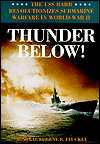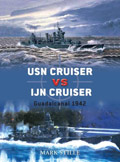Fips - Legendary U-boat Commander
Brooks, Geoffrey
2000, United States Naval Inst.
ISBN 1557502862
Hardcover, 224 pages, illustrations
| Type. | Personal narrative |
| Pros. | Interesting memoir from WWI U-boat commander |
| Cons. | Nothing major |
| Rating. |  |
 While the U-boat campaign of World War II has been well documented, there
are by comparison relatively few books in print that deal with German
submarines and submariners of World War I. The release of Werner
Fürbringer's memoirs in English in Fips: Legendary U-Boat Commander
1915-1918 gives a very rare insight into this first U-boat offensive. The
manuscript was originally published in German in 1933 under the title of
Alarm! Tauchen!! U-Boot in Kampf und Sturm. The book has recently been
translated by Geoffrey Brooks and published by the Naval Institute Press.
While the U-boat campaign of World War II has been well documented, there
are by comparison relatively few books in print that deal with German
submarines and submariners of World War I. The release of Werner
Fürbringer's memoirs in English in Fips: Legendary U-Boat Commander
1915-1918 gives a very rare insight into this first U-boat offensive. The
manuscript was originally published in German in 1933 under the title of
Alarm! Tauchen!! U-Boot in Kampf und Sturm. The book has recently been
translated by Geoffrey Brooks and published by the Naval Institute Press.
Werner Fürbringer certainly had first-hand knowledge of the war beneath the sea during the First World War. After serving as a watch officer on the U-20 until just before that boat sank the Lusitania, Fürbringer went on to command, in turn the UB-2, UB-39, UC-70, UC-17, UB-58, and UB-110, and was awarded the Order of the House of Hohenzollern with Swords. Along the way he survived encounters with Q-ships, fierce storms, enemy destroyers, attempted ramming by merchant ships, and being bombed by a Zeppelin piloted by his uncle! He also managed to get his first command home despite the loss of its single engine by letting the tides carry him down the English Channel.
The book is organized in a series of short chapters, each usually centered around a single patrol or event. The accounts are generally anecdotal in nature and provide a good feeling for the time and events. Overall, the book provides a fast and entertaining read. That said, many basic details about each patrol are not mentioned. Few events are actually dated. Discussions of the tactics used by Fürbringer are also notable by their general absence.
A question with any memoir is how to interpret it. Events are seen through the eyes of a writer that is not without bias. Any person views events through the prism of his or her experiences, which may - or may not - be further influenced by subsequent happenings. In the case of Fips, we are dealing with a memoir published over a decade after the war, just as the Nazis came to power, while the author was a de facto naval officer working secretly and illicitly on submarine development for the German Navy. As translator Geoffrey Brooks notes "If the book can be considered part and parcel of a U-boat recruiting drive it is interesting that he should have depicted U-boat life as such an arduous and miserable form of existence. He did not understate the personnel losses, and placed blame for the Kaiser's failure at sea squarely on the political leadership and its advisors."
Even in this context, three events in the book are especially challenging for readers to interpret. Fürbringer specifically states that 1) he observed troops being transported by hospital ships in 1914, 2) he destroyed a munitions factory in Seaham in 1916, and 3) after his last command, the UB-110, was sunk, English patrol craft machine-gunned the survivors in the water.
Through the research of Geoffrey Brooks, the second incident is explained in detail (Fürbringer fired to miss to spare the town and even dedicated the book, in part, to the single victim of this attack). The other two allegations are more difficult to directly substantiate or refute. Certainly, the Germans accused the British of both illegally using hospital troops to carry troops and slaughtering the survivors of sunken U-boats. Whether these accusations are correct, is of course, a different matter.
Review written by Michael Lowrey.
Published on 24 Sep 2000.
- We have errata information for this title. Check it out!
This title is highly recommended.
Purchase information: (info) Get Fips - Legendary U-boat Commander now at amazon.com ($ 19.99)
Get Fips - Legendary U-boat Commander now at amazon.com ($ 19.99)
Return to our main review page.



